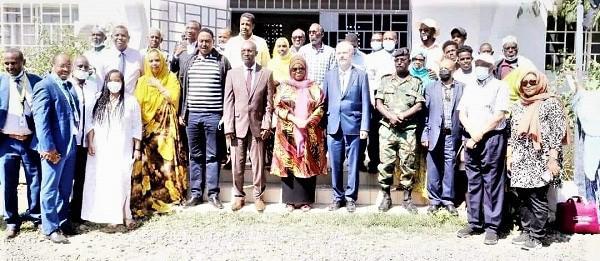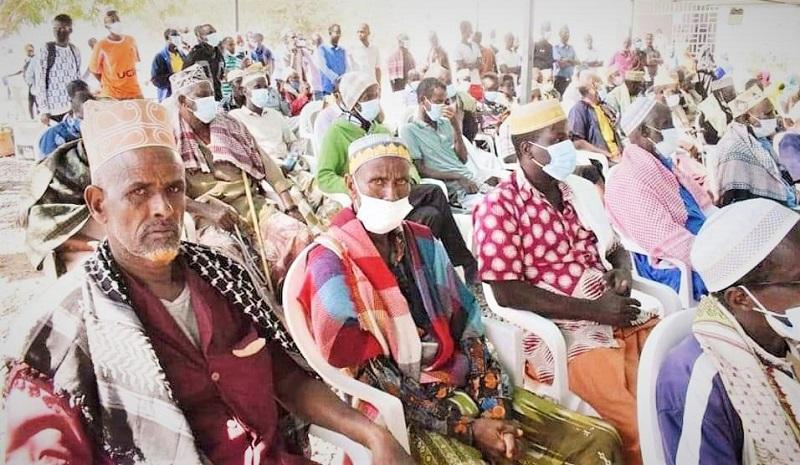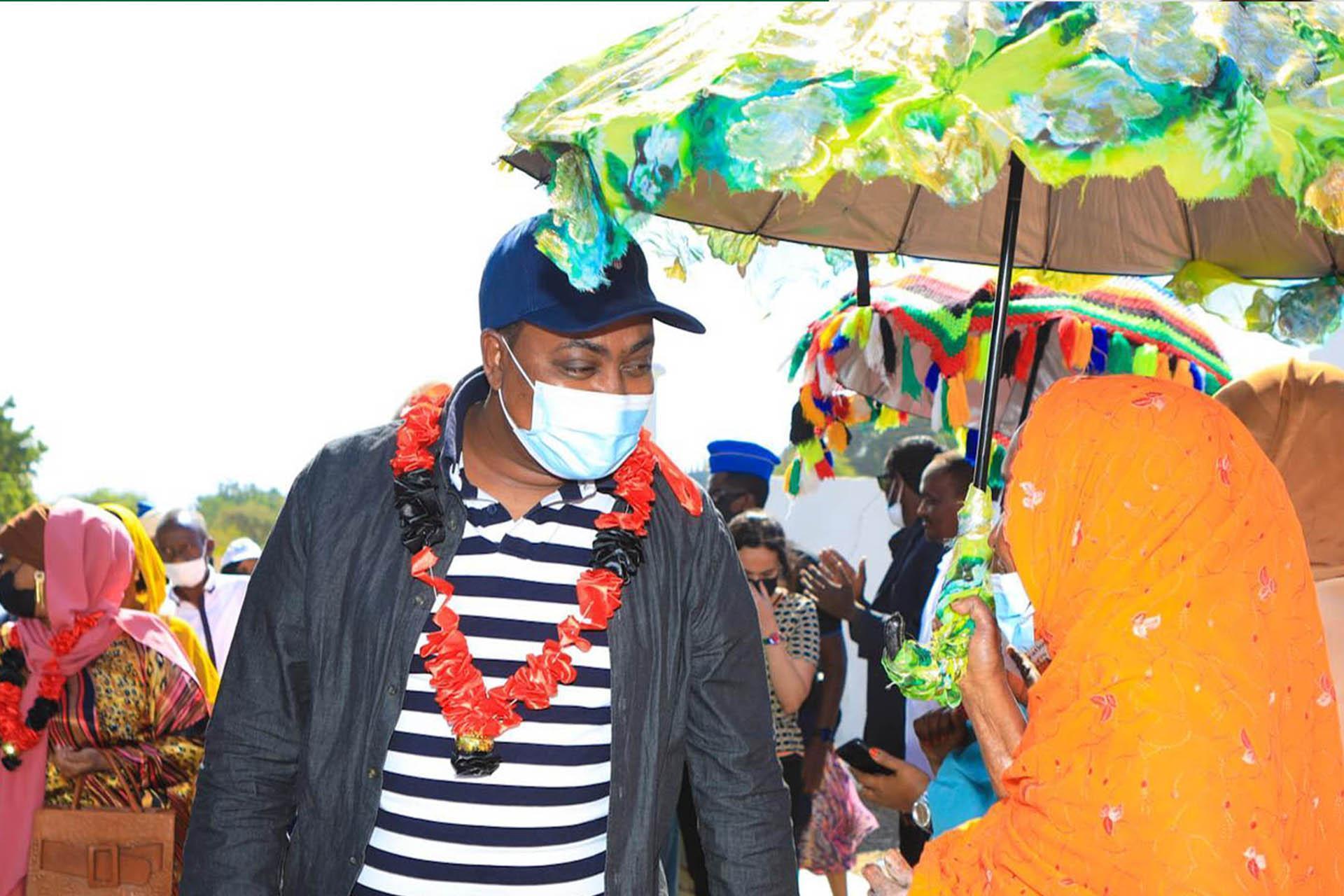December 8, 2021 (Ali–Sabieh, Djibouti): The Intergovernmental Authority on Development (IGAD) has been working for several years on migration management and related programs, with a focus on strengthening national coordination mechanisms and regional consultative processes to support Member States’ policy commitments in an integrated manner. On Wednesday, 8 December 2021 the Regional Migration Fund (RMF) of IGAD launched its projects in Ali Sabieh region located southeast of the Republic of Djibouti.

The event was attended by IGAD’s Executive Secretary, Dr. Workneh Gebeyehu, the German Ambassador to Djibouti and Special Envoy to IGAD, Michael Häusler, key government officials and their representatives including the Minister of Interior and Minister of Youth and Culture, staff from IGAD’s Migration Program led by Mme Fathia Alwan, Director of the Health and Social Development Division, Prefect of Ali Sabieh, members of the Local Coordination Committees of Ali Sabieh and Ali Addeh, partner NGOs operating in the region, as well as representatives of the refugee and host communities.
The keynote speech was made by IGAD’s Executive Secretary, Dr. Gebeyehu. He noted that the planned initiatives would improve the living conditions and provide economic opportunities for both refugee and host communities in the region of Ali Sabieh as well as the sub-prefecture of Ali Addeh. He emphasized the importance of implementing these projects in order to effectively address the challenges of migration by prioritizing socio-economic development interventions at the local level.
Ambassador Michael Häusler reiterated the fact that IGAD had played a positive role in the Horn of Africa, particularly with regard to the issue of migration. He noted that it was encouraging to see that the joint efforts of both IGAD and the German Government to provide meaningful tools for delivering on the regional body’s mandate with respect to socio-economic development and regional migration policies begin to bear fruit.

The projects, which were identified in close coordination with local government officials, will promote income-generating activities and job creation resulting in expansion of socio-economic opportunities for both the host communities and refugee population.
The Regional Migration Fund has begun putting in place a number of activities dubbed Rapid-Cycle Projects (RCPs) and Catalytic Infrastructure Projects (CIPs). They comprise ensuring access to information on rights and access to work and services, ensuring access to market-oriented vocational training, renovation and extension of the Lycée Technique in Ali Sabieh, and construction of markets in Ali Addeh and Ali Sabieh, a community development centre in Ali Addeh and an orientation centre in Djibouti Ville. The total funding allocated for these activities is € 3.6 million (DJF 750 million).

The Regional Migration Fund aims to ensure that funding can be mobilized and implemented at the regional level to support member countries in providing adequate services to migrants, refugees and host communities. The project has two investment windows: Investment Window 1 aims to promote local economic development and employment growth, improve refugee, migrant and host community livelihoods and strengthen social cohesion in two border areas; Investment Window 2 aims to promote economic and social development in one protracted refugee settlement and adjacent host community areas to improve refugee, migrant and host community livelihoods, connect and upgrade the settlement and host community areas and strengthen social cohesion. Ali Sabieh falls within the scope of IW2. The project is funded by KfW on behalf of the German government.

